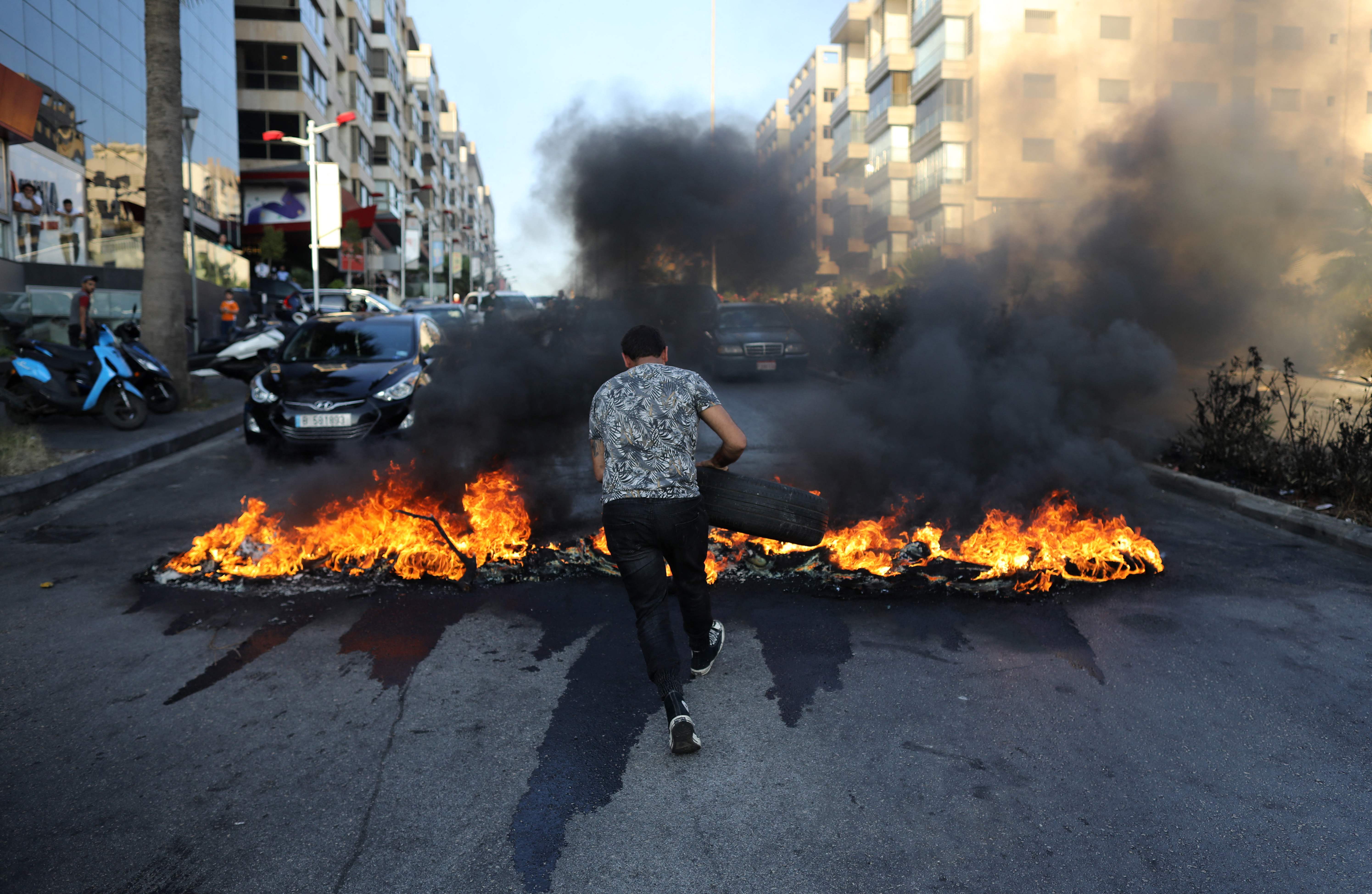Lebanon raises fuel prices amid violence
Fuel prices increased by up to 38 per cent over night as Lebanon faces one of the worst economic crises in modern history

Your support helps us to tell the story
From reproductive rights to climate change to Big Tech, The Independent is on the ground when the story is developing. Whether it's investigating the financials of Elon Musk's pro-Trump PAC or producing our latest documentary, 'The A Word', which shines a light on the American women fighting for reproductive rights, we know how important it is to parse out the facts from the messaging.
At such a critical moment in US history, we need reporters on the ground. Your donation allows us to keep sending journalists to speak to both sides of the story.
The Independent is trusted by Americans across the entire political spectrum. And unlike many other quality news outlets, we choose not to lock Americans out of our reporting and analysis with paywalls. We believe quality journalism should be available to everyone, paid for by those who can afford it.
Your support makes all the difference.The government of Lebanon raised fuel prices on Tuesday, following through on last week’s commitment to cut fuel subsidies.
The move is aimed at easing fuel shortages across the country, but it is also likely to increase pressure on the most disadvantaged consumers.
In a document, the energy ministry set out the new prices for fuel, coming into effect on Tuesday. Twenty litres of 95-octane gasoline will now cost consumers 61,100 Lebanese pounds (£29 GPB) — an increase of 35 per cent or 15,900 LBP (£7.50).
Diesel prices increased by 38 per cent, now set at 46,100 LBP (£22).
On Monday, Lebanon’s central bank said it would begin giving lines of credit to import fuel at 3,900 LBP to the US dollar — a significantly weaker rate than the 1,500 LBP offered under the subsidy programme.
The exchange rate was sitting around 1,507 LBP to USD$1 (£0.7), but, on the black market, dollars were changing hands at a rate of 16,700 pounds to one, a market participant told Reuters.
The increase in fuel prices also followed protests over the weekend and on Monday that saw roadblocks, with protesters burning tires and garbage in the streets. Scuffles between security forces and protesters left nearly 20 people injured in the northern city of Tripoli.
The protests sprang up in response to ongoing fuel and energy shortages in the country, as motorists have had to queue for hours in recent weeks to receive rationed shares of gasoline, and households have been experiencing up to six hours less power per day.
The country is currently facing an economic and financial crisis that the World Bank has described as one of the three most severe that the world has seen since the mid-19th century.
In a report released in early June, the World Bank found that the country’s gross domestic product had shrunk from $55bn in 2018 to just $33bn in 2020, with per capita GDP falling by around 40 per cent.
Across the country, extreme poverty has increased threefold over the past two years, with basic services such as health, electricity, water and education nearly out of reach for many.
“Such a brutal and rapid contraction is usually associated with conflicts or wars,” the report said, warning that the country’s socio-economic conditions could lead to national systemic failures with potential global consequences.
Join our commenting forum
Join thought-provoking conversations, follow other Independent readers and see their replies
Comments